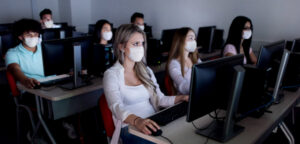
Collaborative Note-Taking for Students
Here’s how collaborative notes typically work: on a rotating basis, students (usually one or two) take notes during class and then post them online. The collaborative notes are intended to support rather than replace individual note-taking, although they do provide absent students information about content













